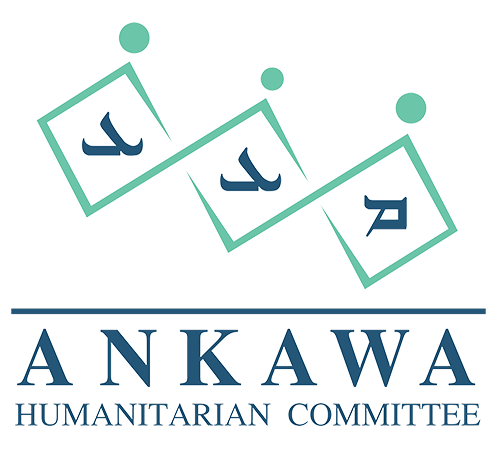Championing Environmental Consciousness: A Successful Conclusion to the Climate Change Responsive Schools Project
As we bid farewell to February, we also mark the conclusion of the impactful Climate Change Responsive Schools project (CCRS). In January of 2023, the Ankawa Humanitarian Committee (AHC) launched the CCRS project with the direct and generous support of Embrace the Middle East, bringing about positive change in Ankawa, Erbil. The project was dedicated to enhancing the understanding and knowledge of school students and communities, with a particular focus on imparting basic climate knowledge and promoting eco-friendly alternatives.
What is the CCRS Project?
The CCRS project’s core objectives revolved around eliminating plastic bottle use and cultivating students’ knowledge about climate change and sustainability. By addressing the excessive use of single-use plastics and implementing improved waste management practices, the project paved the way for a greener and healthier school environment. The strategic emphasis on schools signifies a critical step in addressing climate change at its roots.
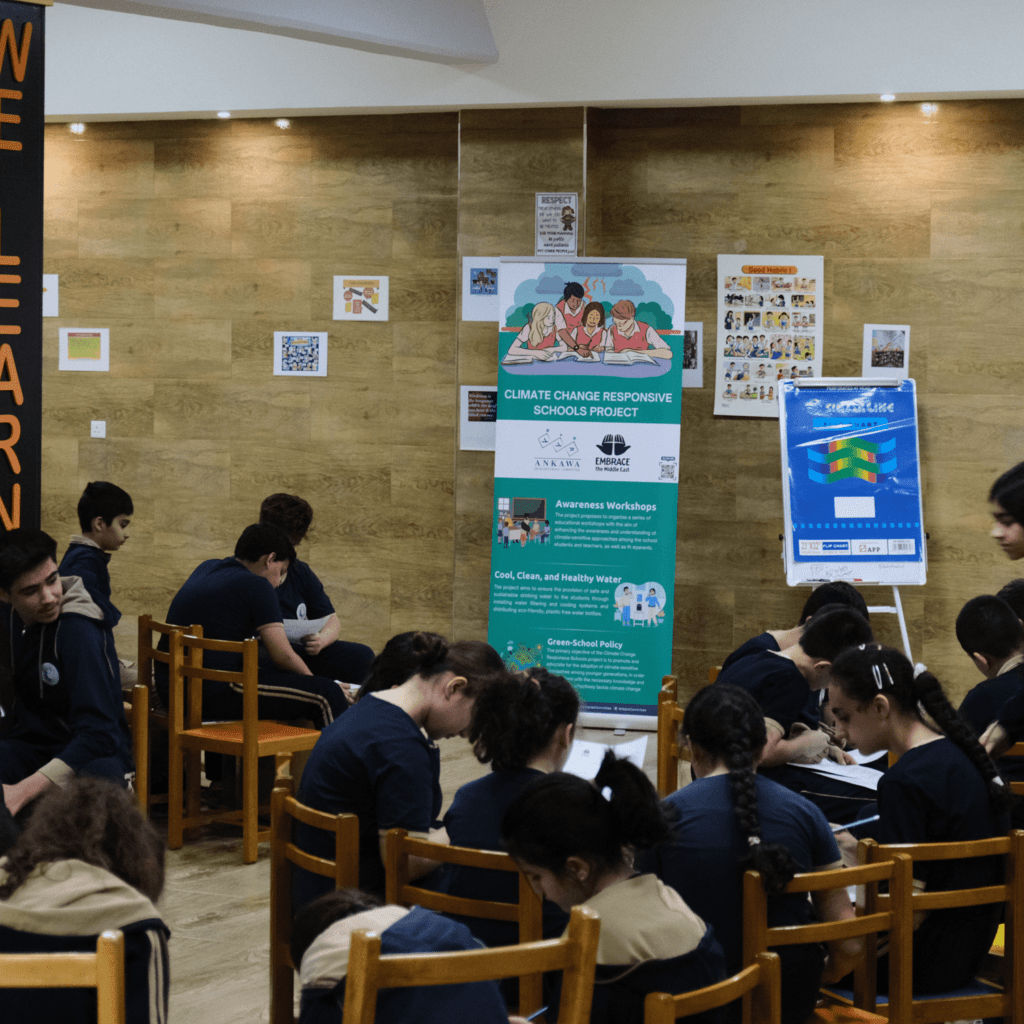
Climate Literacy Awareness Workshops
A cornerstone of the CCRS project was the implementation of educational workshops designed to enhance climate-sensitive awareness among school students. Before these sessions, the project team engaged in thorough focus group discussions to gauge the students’ climate change literacy. Based on these insights, a tailored curriculum was developed and presented in both Arabic and English, ensuring that students received a comprehensive understanding of climate change.
Recognizing the pivotal role of teachers in this endeavor, the project team also developed a curriculum for educators, encompassing topics such as the significance of climate literacy, understanding climate change, differentiating between weather and climate, human influence on climate change, and practical tips for mitigating its impact.
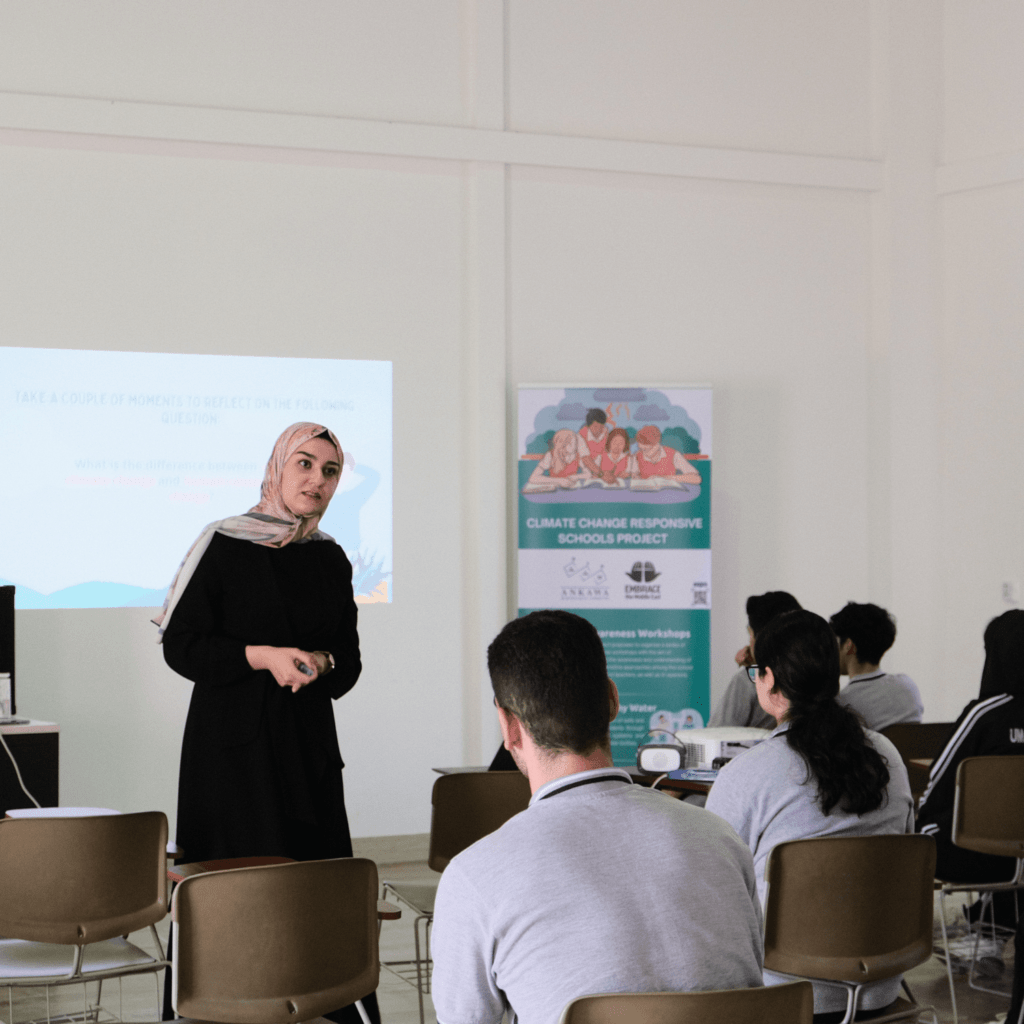
Water Filtering and Cooling Systems
The project implemented water filtering and cooling systems to ensure safe and sustainable drinking water for students. This initiative aimed to provide a healthier water source, eliminating the reliance on plastic bottles. The installation of these systems not only contributes to the practical application of knowledge acquired during awareness sessions and reduces waste within the school environment.
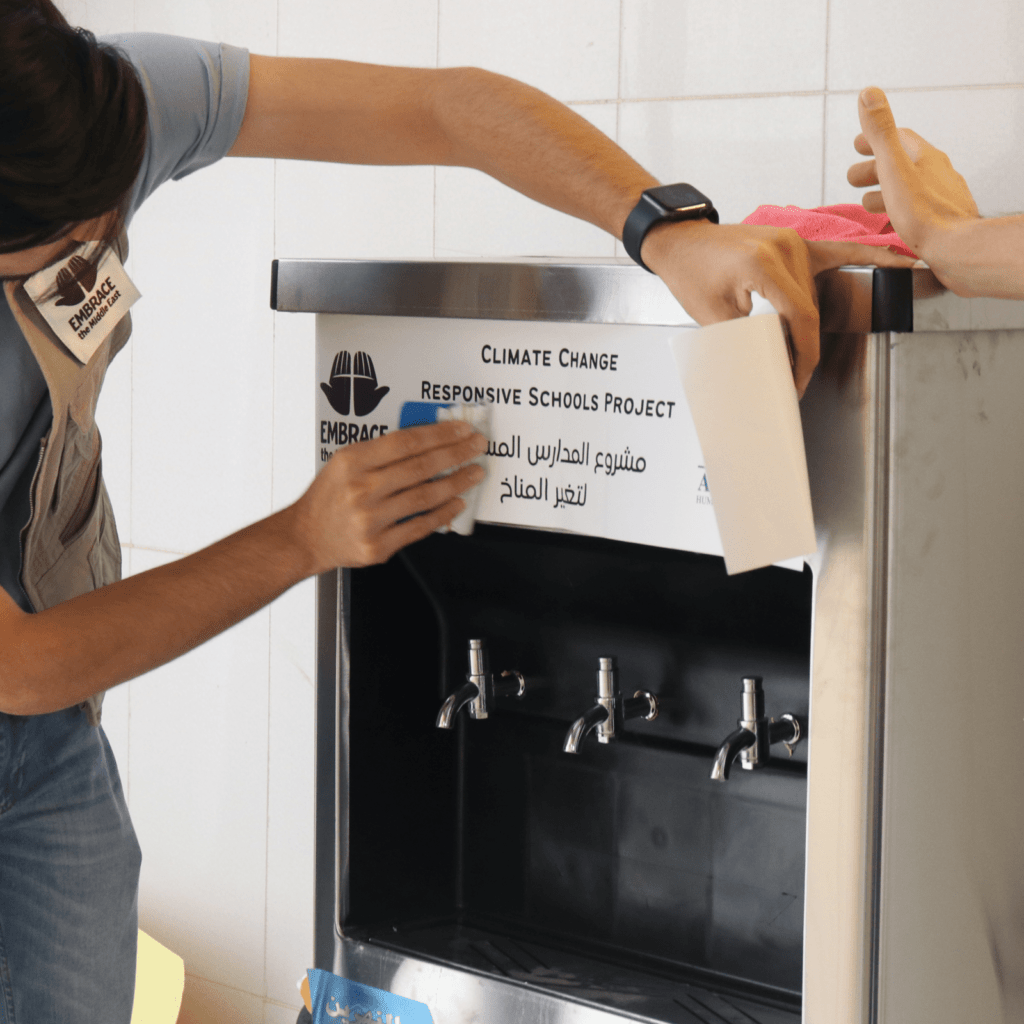
Reusable Water Bottles
A pivotal project element involved providing students with reusable water bottles, actively working to decrease reliance on single-use plastics, and mitigating plastic waste. This initiative promotes environmental sustainability and instills a sense of individual responsibility among students, encouraging them to contribute actively to an eco-friendlier school environment.
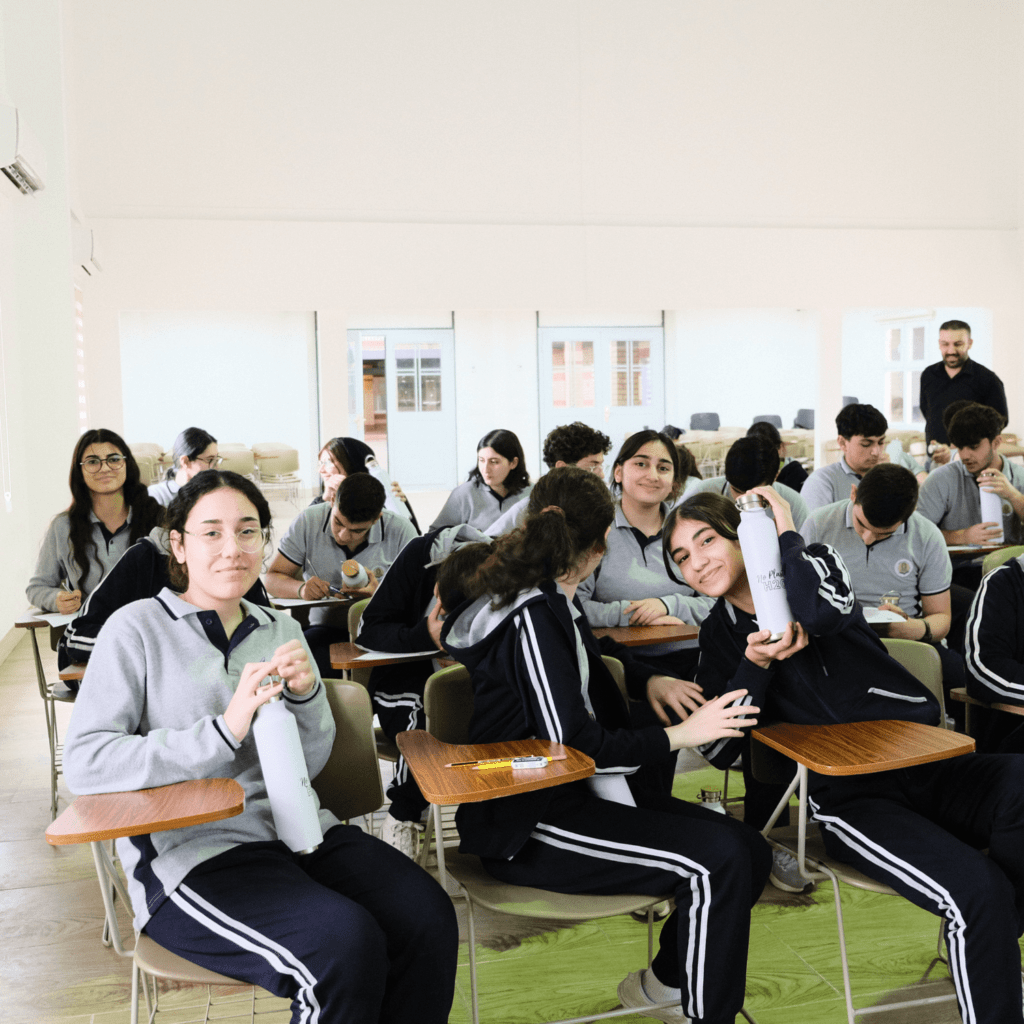
Green Policy
A significant achievement of the CCRS project was the development of the Green Policy, aimed at heightening awareness regarding individual impacts on the environment. This policy fosters advocacy for behaviors contributing to environmental enhancement and encourages ownership and responsibility for classrooms and the overall school environment. Sections within the policy cover energy consumption, water conservation, paper use, waste prevention, procurement, curriculum, teaching, and monitoring and review.
Crucially, the CCRS project team recommended establishing a Green Committee within the school to ensure continued efforts toward improving the school’s green profile. This committee, including students and teachers, ensures diverse insights and interventions for sustained environmental care.
Conclusion
As the CCRS project concludes, it leaves a legacy of positive change and heightened environmental consciousness, shaping a future where schools and communities actively contribute to a healthier, more sustainable planet.

